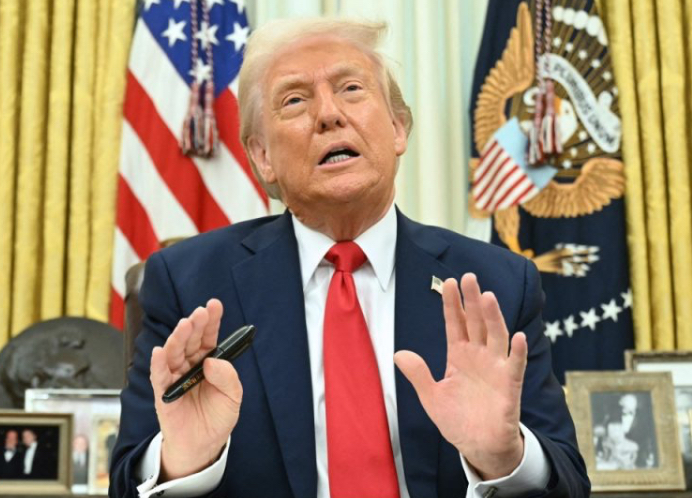U.S. President Donald Trump has announced that exports from Nigeria to the United States will now be subject to a 14% tariff, marking a significant shift in trade relations between the two nations.
Speaking at a ‘Make America Wealthy Again’ event in the White House Rose Garden on Wednesday, Trump framed the decision as part of a broader effort to rebalance global trade and address what he described as unfair trade practices.
“This is one of the most important days in American history,” Trump declared. “We will supercharge our domestic industrial base, pry open foreign markets, and break down foreign trade barriers. More production at home will mean stronger competition and lower prices for consumers.”
The move comes in response to what the Trump administration sees as a longstanding trade imbalance, citing Nigeria’s 27% tariff on U.S. exports as unfair to American businesses. The 14% tariff on Nigerian goods is aimed at mitigating this disparity and ensuring what Trump called “fair trade.”
In addition to the Nigerian tariffs, Trump also unveiled a sweeping new trade policy that imposes a baseline 10% tariff on all U.S. imports, affecting over 50 countries. Other African nations facing increased tariffs include Algeria (30%), Lesotho (50%), Mauritius (40%), Kenya (10%), Namibia (21%), Ethiopia (10%), and Ghana (10%). South Africa, which maintains a 30% tariff on U.S. exports, will face a reciprocal 30% tariff in return.
The policy shift has sent shockwaves through global markets, raising fears of a trade war as major economies, including China, the European Union, India, and Japan, are also affected by the new tariffs.
The Nigerian government has yet to issue an official response, but analysts warn that the new tariffs could have significant implications for bilateral trade and the broader African economy.

